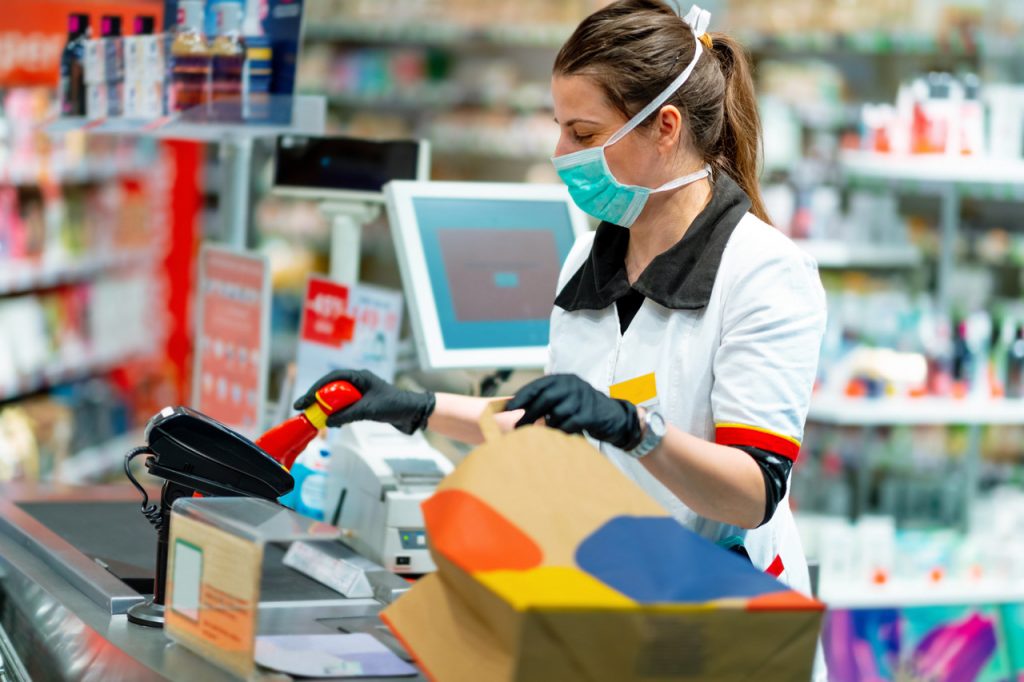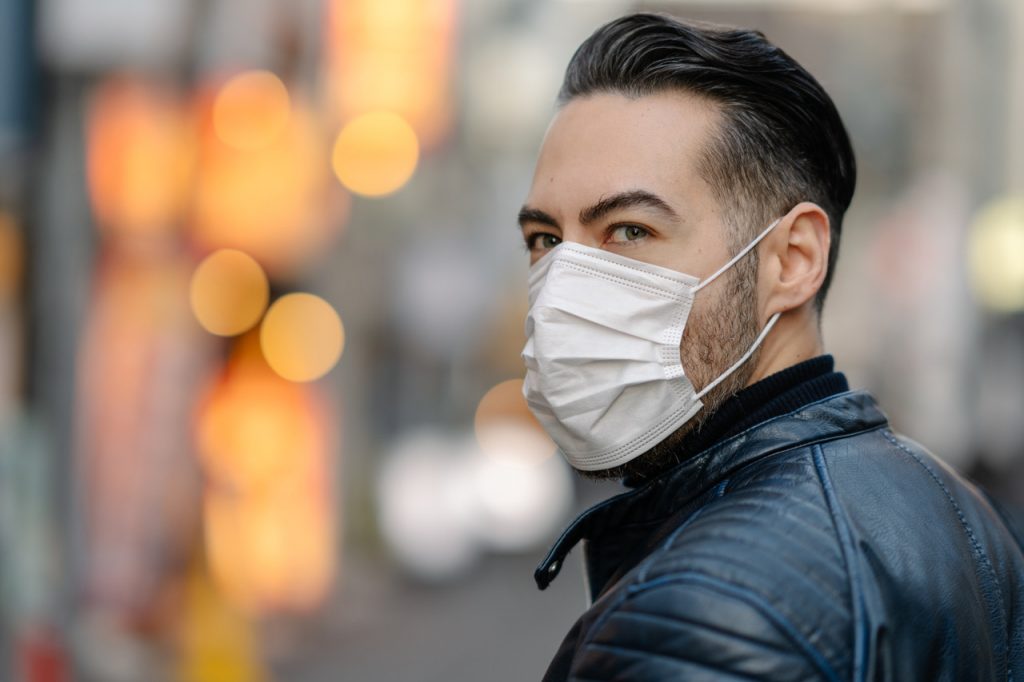COVID-19 is on a global rampage and the US is no exception. The uncertainty and daily reports of deaths is driving an Infodemic which feeds fear. How do we protect ourselves? Is 6’ enough distance from someone else? Do we need masks for everyone?
 Masks have become a source of confusion underscoring the uncertainty we feel about our own actions. Healthcare professionals need masks as well as other protective equipment as the care for patients with COVID-19. The type of mask they need is the now-well-known N95. Specially designed to block 95 percent of small particles from respiratory droplets while providing a tight seal. What type of mask is needed for grocery store visits or for those who must work outside the home during this time?
Masks have become a source of confusion underscoring the uncertainty we feel about our own actions. Healthcare professionals need masks as well as other protective equipment as the care for patients with COVID-19. The type of mask they need is the now-well-known N95. Specially designed to block 95 percent of small particles from respiratory droplets while providing a tight seal. What type of mask is needed for grocery store visits or for those who must work outside the home during this time?
A standard surgical mask does not offer a seal and is not designed to filter out tiny virus but they may still prevent the spread of droplets. Many people are making masks from fabric, or using a bandana or scarf. These may also cut down on spreading droplets (by those who may have COVID but not being showing an symptoms) but will not filter out a sneeze filled with the virus per this Johns Hopkins Overview.
- A downside to people using cloth or surgical masks is that they may give a false sense of security. Social distancing may seem less important when making that trip for groceries. Yet, hand washing and social distancing remain essential actions.
- Many people are still unaware that mounting evidence indicates this virus is spreading even when there are no symptoms. The absence of a cough, headache or fever does not mean there is no virus in the respiratory tract. Fever is a poor screening tool as we are seeing more and more people who test positive for the virus but are fever-free.
A recent review of the science specifically notes there is no evidence that wearing masks for the general public will reduce the spread of COVID-19. They site common use of masks in Hubei province in China as demonstration it did not stop the spread of the virus, as explained in the Center for Infectious Disease Research and Policy.
Your Decision

Many aspects of life carry uncertainty. Masks are just the most recent example because there is so much yet to be learned about this virus. Medical scientists are attempting to provide the best evidence at each moment in time and the recommendation to use masks has come from rapid sharing of the new research findings.
The CDC recommends wearing masks. The announcement in early April may seem to contradict earlier research, but we encourage you to see it an effort to encourage people to take responsibility for preventing further infection. There is increasing evidence that asymptomatic people carrying the virus can spread it – even through casual face-to-face conversation. This is likely the reason we are seeing the virus continue to move across the country. People move around and the virus travels with them.
There is no dispute that cloth face masks are not able to filter virus. So, if you are shopping for groceries and the store is not crowded but someone is coughing and has a cloth mask on do not assume you have protection from the aerosolized virus. What we DO know is that a face covering or mask may slow the distance the virus can travel.
Uncertainty can feed our fears
Fear when not addressed acts as a barrier to thinking. It may lead to angry behaviors or arguments. With stress levels high and practical worries from unemployment and other forced changes during the pandemic, this is a good time to remind ourselves of the words from a researcher who was instrumental in the early development of x-rays:
Nothing in life is to be feared, it is only to be understood.
Now is the time to understand more, so that we may fear less.
Marie Curie (1867-1934)
First woman to win Nobel in Physics (1903) and the Nobel in Chemistry (1911)

Leave a Reply